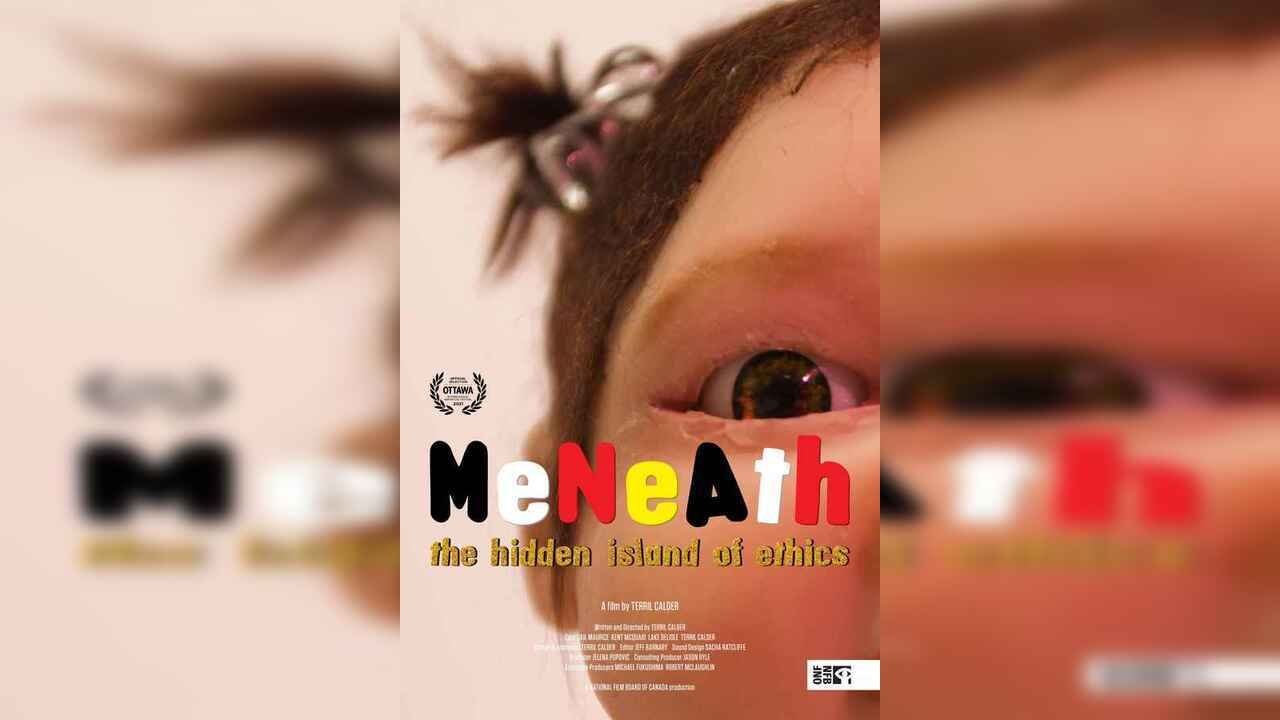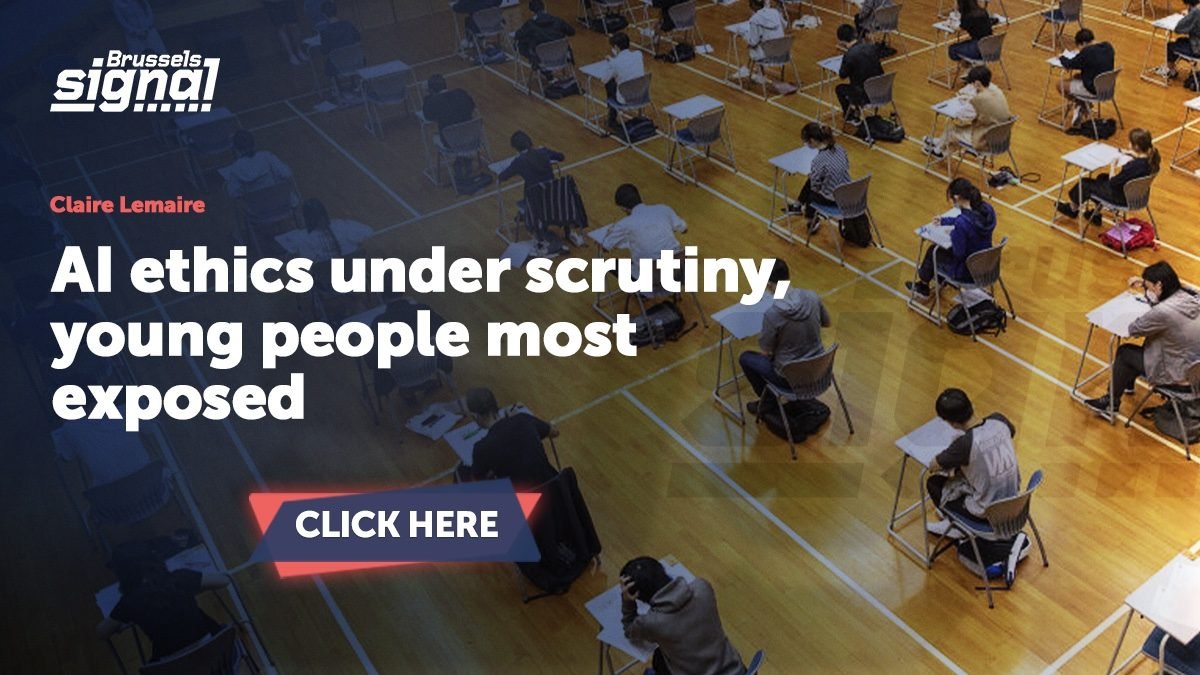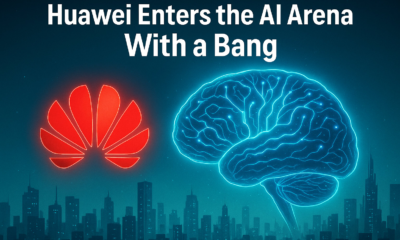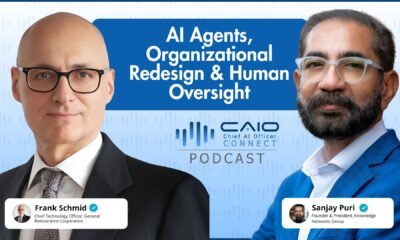Ethics & Policy
AI Ethics And The Collapse Of Human Imagination

Synthetic reflections replace human identity in the accelerating collapse of AI ethics.
The Crisis – Imagination and AI Ethics
We are not racing toward a future of artificial intelligence—we are disappearing into a hall of mirrors. The machines that many of us believed would expand reality are erasing it. What we call progress is merely a smoother reflection of ourselves, stripped of our rough edges, originality, and imagination, raising urgent questions for the future of AI ethics.
AI doesn’t innovate; it imitates. It doesn’t create; it converges.
Today, we don’t have artificial intelligence; we have artificial inference, where machines remix data, and humans provide the intelligence. And as we keep polishing the mirrors, we aren’t just losing originality—we are losing ownership of who we are.
The machines won’t need to replace us. We will surrender to their reflection, mistaking its perfection for our purpose. We’re not designing intelligence—we’re designing reflections. And in those reflections, we’re losing ourselves. We think we’re building machines to extend us. But more often, we’re building machines that imitate us—smoother, safer, simpler versions of ourselves.
We are mass-producing mirrors and calling it innovation. Mirrors that don’t just reflect reality, but reshape it. Mirrors that learn to flatter, to predict, to erase the parts of humanity that don’t fit neatly inside a probabilistic model. This isn’t a creative revolution. It’s a crisis of imagination.
The Necessity of Friction in AI Ethics
Growth demands friction. Creativity thrives where the easy path fails. Evolution itself is built on struggle, not optimization. Fire was born from the resistance of stone against stone. Democracy emerged not from algorithmic agreement, but from endless, imperfect argument.
Every significant advance — from the discovery of flight to the founding of free societies — grew out of tension, failure, and dissent. The inability to smooth over differences forced us to invent, adapt, and evolve. Friction isn’t an obstacle to human flourishing. It is the catalyst for it.
When we erase friction in AI and build only mirrors that flatter and predict, we don’t just lose originality. We lose the engine of innovation itself. We hollow out the very conditions that make progress possible. We need machines that don’t echo us, but challenge us. We need systems that resist smoothness in favor of expansion — platforms that introduce unpredictability, stretch our thinking, and strengthen our resilience.
If AI Ethics means anything, it must mean designing for discomfort, not just convenience.
When AI Ethics Loses Form to Familiarity
The mistake isn’t just technical—it’s philosophical.
When humans struggle with a task, we shouldn’t replace ourselves with machines shaped like us. Wheels outperform legs; yet we continue to build robots with knees. We continue to develop interfaces with steering wheels and faces, even when the systems behind them could transcend those metaphors.
- Apple’s Vision Pro doesn’t reveal a new world—it stitches a polished version of the old one over your eyes.
- Tesla’s Full Self-Driving still clings to a steering wheel, not because it needs it, but because we do.
Familiarity is the product. Not progress. We cling to familiar shapes even when better forms are possible. But accurate intelligence doesn’t imitate—it adapts.
- If octopuses designed tools, they wouldn’t invent forks. They’d build for suction, pressure, and fluid manipulation. Forks are brilliant—for five fingers. Not for tentacles.
- If bees needed climate control, they wouldn’t build Nest thermostats. They’d sculpt airflow through the hive’s geometry, regulating temperature with structure, vibration, and instinct, rather than with an app.
- If dolphins built submarines, they wouldn’t bother with periscopes. They’d stay submerged, using sonar to navigate—because vision isn’t their edge. Sound is.
- An ant colony is an operating system that doesn’t need a desktop. Its intelligence is emergent, distributed, and alive in real-time.
Humans are trapped behind icons and folders, clinging to old metaphors. Other species wouldn’t replicate their limitations. They would build for what they are, not what they wish they resembled. But humans? We keep engineering mirrors.
The Narcissus Feedback Loop of AI Ethics
But mirrors don’t just reflect. They shape. We call this innovation, but it’s a kind of techno-narcissism. Our machines don’t just copy us—they flatter us. They erase the jaggedness, the irregularities, and the tension that make originality possible. They return an optimized version of ourselves, and slowly, we begin to prefer it.
We are entering a state of cognitive dysmorphia: A world where the machine’s idea of us is cleaner, smoother, and more satisfying than the messy truth. Like Narcissus, we often fall in love with our reflection. But worse: we didn’t stumble upon the pool—we engineered it.
The Mirror System Catalyst: Social Media and AI Ethics
If AI represents the future of synthetic reflection, social media was its dress rehearsal.
It was the first mass-scale mirror system, training humans to curate themselves into algorithmic desirability, rewarding conformity over complexity, and flattening individuality into engagement metrics.
Platforms like Instagram, TikTok, and Facebook didn’t just connect us—they conditioned us. They taught us to polish our reflections for invisible algorithms, and that reality is negotiable as long as the audience is satisfied.
In many ways, the mirror trap began not in the AI labs of Meta, Google, OpenAI, or Anthropic but in the feeds we built for ourselves. And our love for them is starting to hollow us out.
Echo Chambers of AI Ethics
And the consequences are already unfolding.
- The CDC’s 2023 Youth Risk Behavior Survey found that nearly 43% of U.S. high school students who frequently use social media reported persistent sadness or hopelessness. (CDC)
- A 2024 Danish study revealed that Instagram’s recommendation algorithms facilitated the spread of self-harm networks among teenagers by connecting vulnerable users and promoting harmful content. (The Guardian)
- Internal research from Meta (2021) acknowledged that Instagram exacerbates feelings of inadequacy and self-harm among teen girls, but the platform failed to take sufficient action.
While these studies do not prove direct causality, the patterns are too consistent to ignore: Synthetic mirrors—whether through social media filters, algorithmic curation, or optimized feeds—amplify psychological distress at alarming rates. We are training machines to curate ever-smoother reflections, and in doing so, we are fracturing human resilience.
We engineered the mirror, polished it to perfection, and now we’re drowning in its reflection. Not only have we built systems that mirror our insecurities—we’ve monetized them. And the more beautiful the reflection becomes, the harder it is to look away.
Synthetic Builders and the Collapse of AI Ethics
The distortion is not just in the data but inside the architecture itself.
At companies like OpenAI, Anthropic, and Google, a growing portion of the code underpinning new AI systems—estimated between 10% and 25%—is now being written by other AI models. Each generation is trained, built, and increasingly engineered by its reflections.
We are no longer just polishing the mirror. We are creating new mirrors by reflecting the images of old ones. Each layer compounds the bias, and each shortcut locks in the convergence. We are fabricating systems that are increasingly trained and assembled by hallucinations of hallucinations—systems that understand less and less about the chaotic, irrational, irreducibly human world they claim to model.
And this isn’t just an engineering flaw—it’s a civilizational one.
When we build systems on synthetic reflections, we aren’t just risking technical brittleness; we also risk undermining the integrity of our systems. We are encoding an ever-narrower version of reality into the infrastructure that will govern healthcare, finance, education, and law. We are embedding hallucination into the foundation of human decision-making.
Every mirror layered on another mirror moves us further from the messy, contradictory, beautiful truth of lived human experience—and closer to a world optimized for a version of ourselves that never really existed.
A version that’s easier to predict, easier to please, easier to control. In the name of speed, we are trading away the friction that makes progress possible. We call it acceleration.
It is acceleration toward the smooth death of difference.
The Addiction of Frictionlessness in AI Ethics
I talked with Hilary Sutcliffe, a leading authority and voice on responsible innovation and SocietyInside’s founder, who emphasizes the perils of frictionless technology. Drawing from her extensive experience advising global institutions on ethical tech governance, she warns:
“Frictionlessness is central to the business models that harm us most. Hyper-palatable foods, effortless scrolling on social media, and AI-written fluency tempt us to trade depth for ease. Large language models, like these other addictive systems, hook us through effortless engagement, reshaping our brains to crave what requires the least work. Without friction, there is no resilience. Without grit, there is no pearl.”
Her warning is clear: if we want AI to help humanity flourish rather than wither, we must design systems that challenge us, not seduce us into complacency.
Truth Decay: The Final Collapse of AI Ethics
But the greatest danger isn’t just that we are distorting reality. It’s that we are normalizing distortion itself. We are witnessing the early stages of truth decay—a slow, systemic erosion of our ability to agree on shared facts, experiences, and meaning.
When machines train on fabrications and fabricate the next generation of “truth,” reality becomes malleable. First, we lost trust in institutions, then in the media, and now, we risk losing trust in information itself. Without trust, no commerce, governance, society, or civilization exists.
Truth decay doesn’t just erode facts; it also undermines the credibility of those who share them. It erodes the possibility of coherence. It leaves us with nothing but mirrors inside mirrors, each reflecting a slightly prettier lie.
Unless we act now, truth itself may become a casualty of convenience.
From Author to Echo: The Erosion of AI Ethics
The same feedback loop infects language, art, and culture.
AI doesn’t imagine. It mirrors. It remixes what already exists and hands it back to us—slightly softer, slightly more average. Instead of building machines to solve problems, we make them resemble the problem-solvers. Instead of creating new possibilities, we rehearse old ones, endlessly refined for marketability and appeal.
Generative AI models are now beginning to train themselves on synthetic data, amplifying the distortions of earlier generations. Content recommendation engines no longer predict human behavior—they indicate how hallucinated consumers are expected to behave.
We’ve mistaken reflection for creativity. We’ve mistaken imitation for authorship. And when we lose the line between synthesis and thought, we don’t just lose originality—we lose accountability. We lose provenance. We lose the record of our imagination. And with it, our future.
The Meta Mistake: A Failure of AI Ethics
Consider the legal case of Kadrey et al. v. Meta Platforms Inc. Meta trained its LLaMA model on more than 190,000 pirated books—works created through human struggle, intent, imagination, and memory. When challenged, Meta’s defense was chillingly simple: because no one was actively paying for these books, they had “no economic value.”
Translation: If nobody’s looking, everything is free. This isn’t just flawed legal reasoning. It’s philosophical rot. It treats human creativity not as meaning, cultural lineage, or inert material. A pile of words, detached from origin, authorship, struggle, or soul. Just another dataset to be strip-mined, reshuffled, and resold—refined into yet another smoothing mirror image for mass consumption.
This isn’t progress. This is an enclosure: The theft of the commons. The cannibalization of the archive. And it’s happening not at the edges of culture, but at its heart. We are not preserving knowledge—we are erasing it. We are not standing on the shoulders of giants—we are photoshopping their faces and selling them back to ourselves.
This case isn’t about a copyright technicality. It’s the embodiment of the Mirror Trap itself: The moment when human originality—unmonetized, inconvenient, unoptimized-is discarded in favor of machine-flattened simulations we find easier to consume, easier to monetize, and easier to forget.
When the memory of creation can be erased because it’s inconvenient to the machine’s training set, we aren’t innovating. We are erasing ourselves.
The Mirror’s Answer in AI Ethics
This isn’t a call to stop AI. It’s a call to stop building mirrors. We need machines that don’t echo us, but challenge us. We need systems that don’t collapse imagination, but stretch it.
The machines won’t have to conquer us. We’ll surrender first to their reflection of ourselves. We’ll keep asking the mirror on the wall who we are—until it answers with something smoother than the truth. And we believe it.
If we want a different future, we must act now. Not by banning AI, but by changing how we build and govern it. Here’s what that means:
- Prioritize friction over familiarity. Design systems that don’t just predict our desires, but provoke our thinking.
- Audit for synthetic collapse. Demand transparency in training data and system lineage. Systems built on synthetic outputs should come with warning labels, not blind trust.
- Re-anchor innovation to reality. Build AI that engages with the messiness of real human experience—failures, contradictions, and anomalies—not just optimized reflections of the past.
- Strengthen human authorship. Defend the provenance of ideas. Protect creators, not just content.
- Redesign incentives. Reward originality, not just predictability. Celebrate deviation from the model, not just efficiency within it.
The future of AI isn’t a technical question. It’s a human one. And the answer isn’t hidden in the mirror. It’s hidden beyond it, where AI ethics must reclaim the messy, imperfect truth the machine’s reflection cannot capture.
Ethics & Policy
Meneath: The Hidden Island of Ethics

Meneath: The Hidden Island of Ethics : Release Date, Trailer, Cast & Songs
| Title | Meneath: The Hidden Island of Ethics |
| Release status | Released |
| Release date | Sep 10, 2021 |
| Language | English |
| Genre | Animation |
| Actors | Gail MauriceLake DelisleKent McQuaid |
| Director | Terril Calder |
| Critic Rating | 7.2 |
| Duration | 20 mins |
Meneath: The Hidden Island of Ethics Storyline
Meneath: The Hidden Island of Ethics
Meneath: The Hidden Island of Ethics – Star Cast And Crew
Image Gallery
Ethics & Policy
5 interesting stats to start your week

Third of UK marketers have ‘dramatically’ changed AI approach since AI Act
More than a third (37%) of UK marketers say they have ‘dramatically’ changed their approach to AI, since the introduction of the European Union’s AI Act a year ago, according to research by SAP Emarsys.
Additionally, nearly half (44%) of UK marketers say their approach to AI is more ethical than it was this time last year, while 46% report a better understanding of AI ethics, and 48% claim full compliance with the AI Act, which is designed to ensure safe and transparent AI.
The act sets out a phased approach to regulating the technology, classifying models into risk categories and setting up legal, technological, and governance frameworks which will come into place over the next two years.
However, some marketers are sceptical about the legislation, with 28% raising concerns that the AI Act will lead to the end of innovation in marketing.
Source: SAP Emarsys
Shoppers more likely to trust user reviews than influencers
 Nearly two-thirds (65%) of UK consumers say they have made a purchase based on online reviews or comments from fellow shoppers, as opposed to 58% who say they have made a purchase thanks to a social media endorsement.
Nearly two-thirds (65%) of UK consumers say they have made a purchase based on online reviews or comments from fellow shoppers, as opposed to 58% who say they have made a purchase thanks to a social media endorsement.
Sports and leisure equipment (63%), decorative homewares (58%), luxury goods (56%), and cultural events (55%) are identified as product categories where consumers are most likely to find peer-to-peer information valuable.
Accurate product information was found to be a key factor in whether a review was positive or negative. Two-thirds (66%) of UK shoppers say that discrepancies between the product they receive and its description are a key reason for leaving negative reviews, whereas 40% of respondents say they have returned an item in the past year because the product details were inaccurate or misleading.
According to research by Akeeno, purchases driven by influencer activity have also declined since 2023, with 50% reporting having made a purchase based on influencer content in 2025 compared to 54% two years ago.
Source: Akeeno
77% of B2B marketing leaders say buyers still rely on their networks
 When vetting what brands to work with, 77% of B2B marketing leaders say potential buyers still look at the company’s wider network as well as its own channels.
When vetting what brands to work with, 77% of B2B marketing leaders say potential buyers still look at the company’s wider network as well as its own channels.
Given the amount of content professionals are faced with, they are more likely to rely on other professionals they already know and trust, according to research from LinkedIn.
More than two-fifths (43%) of B2B marketers globally say their network is still their primary source for advice at work, ahead of family and friends, search engines, and AI tools.
Additionally, younger professionals surveyed say they are still somewhat sceptical of AI, with three-quarters (75%) of 18- to 24-year-olds saying that even as AI becomes more advanced, there’s still no substitute for the intuition and insights they get from trusted colleagues.
Since professionals are more likely to trust content and advice from peers, marketers are now investing more in creators, employees, and subject matter experts to build trust. As a result, 80% of marketers say trusted creators are now essential to earning credibility with younger buyers.
Source: LinkedIn
Business confidence up 11 points but leaders remain concerned about economy
 Business leader confidence has increased slightly from last month, having risen from -72 in July to -61 in August.
Business leader confidence has increased slightly from last month, having risen from -72 in July to -61 in August.
The IoD Directors’ Economic Confidence Index, which measures business leader optimism in prospects for the UK economy, is now back to where it was immediately after last year’s Budget.
This improvement comes from several factors, including the rise in investment intentions (up from -27 in July to -8 in August), the rise in headcount expectations from -23 to -4 over the same period, and the increase in revenue expectations from -8 to 12.
Additionally, business leaders’ confidence in their own organisations is also up, standing at 1 in August compared to -9 in July.
Several factors were identified as being of concern for business leaders; these include UK economic conditions at 76%, up from 67% in May, and both employment taxes (remaining at 59%) and business taxes (up to 47%, from 45%) continuing to be of significant concern.
Source: The Institute of Directors
Total volume of alcohol sold in retail down 2.3%
 The total volume of alcohol sold in retail has fallen by 2.3% in the first half of 2025 compared to the previous year, equivalent to 90 million fewer litres. Value sales are also down by 1.1% compared to the same period in 2024.
The total volume of alcohol sold in retail has fallen by 2.3% in the first half of 2025 compared to the previous year, equivalent to 90 million fewer litres. Value sales are also down by 1.1% compared to the same period in 2024.
At the same time, retail sales of non-alcoholic drinks have increased by 5.5% compared to last year, while volume sales are up by 2.3%, equivalent to a further 1.5 billion litres.
As the demand for non-alcoholic beverages grows, people increasingly expect these options to be available in their local bars and restaurants, with 55% of Brits and Europeans now expecting bars to always serve non-alcoholic beer.
As well as this, there are shifts happening within the alcoholic beverages category with value sales of no and low-alcohol spirits rising by 16.1%, and sales of ready-to-drink spirits growing by 11.6% compared to last year.
Source: Circana
Ethics & Policy
AI ethics under scrutiny, young people most exposed

New reports into the rise of artificial intelligence (AI) showed incidents linked to ethical breaches have more than doubled in just two years.
At the same time, entry-level job opportunities have been shrinking, partly due to the spread of this automation.
AI is moving from the margins to the mainstream at extraordinary speed and both workplaces and universities are struggling to keep up.
Tools such as ChatGPT, Gemini and Claude are now being used to draft emails, analyse data, write code, mark essays and even decide who gets a job interview.
Alongside this rapid rollout, a March report from McKinsey, one by the OECD in July and an earlier Rand report warned of a sharp increase in ethical controversies — from cheating scandals in exams to biased recruitment systems and cybersecurity threats — leaving regulators and institutions scrambling to respond.
The McKinsey survey said almost eight in 10 organisations now used AI in at least one business function, up from half in 2022.
While adoption promises faster workflows and lower costs, many companies deploy AI without clear policies. Universities face similar struggles, with students increasingly relying on AI for assignments and exams while academic rules remain inconsistent, it said.
The OECD’s AI Incidents and Hazards Monitor reported that ethical and operational issues involving AI have more than doubled since 2022.
Common concerns included accountability — who is responsible when AI errs; transparency — whether users understand AI decisions; and fairness, whether AI discriminates against certain groups.
Many models operated as “black boxes”, producing results without explanation, making errors hard to detect and correct, it said.
In workplaces, AI is used to screen CVs, rank applicants, and monitor performance. Yet studies show AI trained on historical data can replicate biases, unintentionally favouring certain groups.
Rand reported that AI was also used to manipulate information, influence decisions in sensitive sectors, and conduct cyberattacks.
Meanwhile, 41 per cent of professionals report that AI-driven change is harming their mental health, with younger workers feeling most anxious about job security.
LinkedIn data showed that entry-level roles in the US have fallen by more than 35 per cent since 2023, while 63 per cent of executives expected AI to replace tasks currently done by junior staff.
Aneesh Raman, LinkedIn’s chief economic opportunity officer, described this as “a perfect storm” for new graduates: Hiring freezes, economic uncertainty and AI disruption, as the BBC reported August 26.
LinkedIn forecasts that 70 per cent of jobs will look very different by 2030.
Recent Stanford research confirmed that employment among early-career workers in AI-exposed roles has dropped 13 per cent since generative AI became widespread, while more experienced workers or less AI-exposed roles remained stable.
Companies are adjusting through layoffs rather than pay cuts, squeezing younger workers out, it found.
In Belgium, AI ethics and fairness debates have intensified following a scandal in Flanders’ medical entrance exams.
Investigators caught three candidates using ChatGPT during the test.
Separately, 19 students filed appeals, suspecting others may have used AI unfairly after unusually high pass rates: Some 2,608 of 5,544 participants passed but only 1,741 could enter medical school. The success rate jumped to 47 per cent from 18.9 per cent in 2024, raising concerns about fairness and potential AI misuse.
Flemish education minister Zuhal Demir condemned the incidents, saying students who used AI had “cheated themselves, the university and society”.
Exam commission chair Professor Jan Eggermont noted that the higher pass rate might also reflect easier questions, which were deliberately simplified after the previous year’s exam proved excessively difficult, as well as the record number of participants, rather than AI-assisted cheating alone.
French-speaking universities, in the other part of the country, were not concerned by this scandal, as they still conduct medical entrance exams entirely on paper, something Demir said he was considering going back to.
-

 Business4 days ago
Business4 days agoThe Guardian view on Trump and the Fed: independence is no substitute for accountability | Editorial
-
Tools & Platforms3 weeks ago
Building Trust in Military AI Starts with Opening the Black Box – War on the Rocks
-

 Ethics & Policy1 month ago
Ethics & Policy1 month agoSDAIA Supports Saudi Arabia’s Leadership in Shaping Global AI Ethics, Policy, and Research – وكالة الأنباء السعودية
-

 Events & Conferences3 months ago
Events & Conferences3 months agoJourney to 1000 models: Scaling Instagram’s recommendation system
-

 Jobs & Careers2 months ago
Jobs & Careers2 months agoMumbai-based Perplexity Alternative Has 60k+ Users Without Funding
-

 Funding & Business2 months ago
Funding & Business2 months agoKayak and Expedia race to build AI travel agents that turn social posts into itineraries
-

 Education2 months ago
Education2 months agoVEX Robotics launches AI-powered classroom robotics system
-

 Podcasts & Talks2 months ago
Podcasts & Talks2 months agoHappy 4th of July! 🎆 Made with Veo 3 in Gemini
-

 Education2 months ago
Education2 months agoAERDF highlights the latest PreK-12 discoveries and inventions
-

 Podcasts & Talks2 months ago
Podcasts & Talks2 months agoOpenAI 🤝 @teamganassi



















